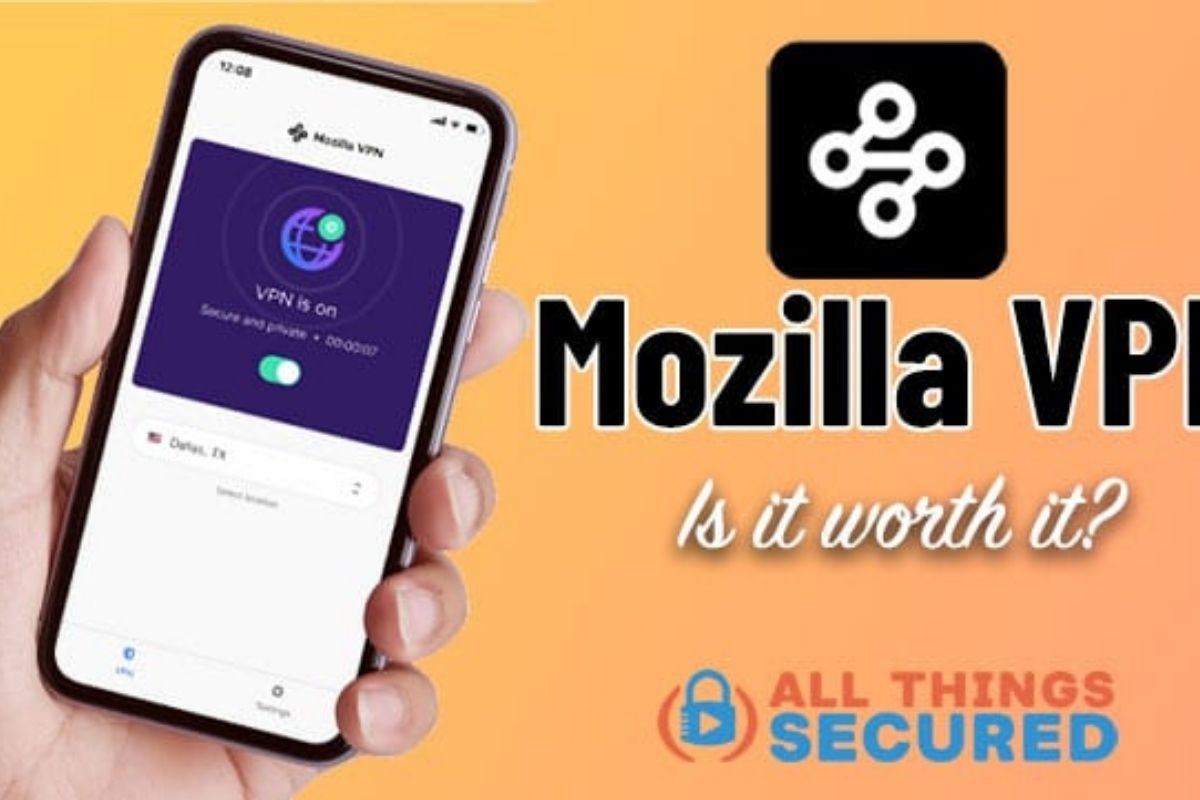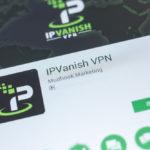If you’re an internet user (and if you’re reading this, then you must be), you’ll likely have heard about VPNs before. They’re becoming increasingly common as a way of protecting yourself online.
VPNs work by hiding your IP address and online activity from any prying eyes. This includes cyber criminals, businesses, and governments, all of whom have their own reasons for snooping on you.

You might also know the name Mozilla – it’s a company most famous for creating the wildly popular web browser, FireFox. They’ve now branched out to create their own brand of VPN, but how does it stack up to its other competitors? In this review, we’ll find out.
Overview
Mozilla is the company behind one of the better privacy-conscious browsers, FireFox, and they also offer a pretty decent VPN. It originally began as a simple browser extension for FireFox, but has now grown into a fully-fledged VPN service.
It has a nice design and some excellent features that not all VPNs offer. We’ll go into these in more detail as we progress through the different aspects of the Mozilla VPN.
Security Features
The first thing we note about the security protocol of Mozilla’s VPN is positive – it uses AES-256 encryption protocols. This is important, because it’s not only the industry standard, but also the kind of encryption that banks and governments use.
It’s the optimum protocol for keeping your information secure, which is exactly what you require with a VPN.
It also offers some other security features that don’t always come as standard with VPNs. One of these is something called split tunneling. This will allow you to channel some of your online activities through the VPN but not others – this means that you can save some bandwidth to maintain speed while keeping safe.
Another one is a kill switch. A kill switch is a great safety feature that automatically disconnects your device from the internet if the VPN connection is broken. That might sound inconvenient, but it’s actually a great idea.
If your VPN connection is lost – and it can happen without you even realizing it – then your activity is unprotected. The kill switch stops that from being a problem.
Yet another is multihop connections. This is a way of directing your internet activity through not one, but two different VPN servers in different locations. This comes at a cost of performance – doing this takes a fair bit of extra time – but it makes your online security even more ironclad.
All this makes for a fairly impressive array of features.
We are also pleased with the transparency that the company has committed to regarding data gathering and security protocols. The company explains in some depth (on the Mozilla website) their commitment to openness and transparency. It is a laudable cause.
There is a bit of a fly in this ointment, however. Mozilla is headquartered in the United States, and the US is a founding member of the Five Eyes alliance. This is an intelligence sharing alliance comprising the US, UK, Canada, Australia, and New Zealand.
Companies headquartered in one of these countries can be leaned on by the alliance to provide information about their users to their governments, which could compromise your security.
Some other VPNs are headquartered in more privacy-friendly territories (like the Seychelles or the British Virgin Islands), but Mozilla VPN does not have that safeguard. For many consumers this is not an issue, as they feel that their internet usage is not overly sensitive, or their data overly vulnerable.
However, if keeping secure your internet privacy is priority number one for you, then this 5-Eyes involvement could loom as a dealbreaker.
Streaming
Another common reason that people like to use VPNs is that they can be used to bypass region locking. Many streaming services (like Netflix, etc.) region lock some of their content for legal reasons, meaning that it can only be accessed from certain locations.

For example, the Netflix library you can access from the US isn’t the same as the one you can access from the UK. If you want to get around this, then a VPN is clearly the easiest way. However, VPNs can differ wildly in which services they can access.
Unfortunately, our tests found that Mozilla’s VPN struggled to unblock Netflix and other streaming services like Hulu and Disney+.
VPN services are in a constant battle with streaming services – the services try to block VPNs from accessing their content, and VPNs respond by finding ways to circumvent these blocks. The streaming services find new ways to block them and the cycle continues. It’s a cat and mouse game.
This means that it’s perfectly possible that the ability of Mozilla (or any other VPN, for that matter) to gain access to a streaming service will change relatively regularly, though some are more consistent than others.
This means that it is perfectly feasible that the Mozilla VPN will be able to break through region locking in the future, but for now, we can’t recommend it on that score.
Speeds
This is one of Mozilla VPN’s major strengths. It has surprisingly excellent speeds all around, with download speeds in particular being a highlight. This means it’s also well suited to P2P file sharing (i.e. torrenting).
Servers
Mozilla VPN offers only 400 servers, which is a substantially lower number than most of its rivals. Even some smaller VPNs have server numbers in the higher hundreds, and larger ones usually have thousands. For example, ExpressVPN has over 5000 servers and CyberGhost has over 7000.
With that being said, it’s not as simple as more servers being better. Another thing to take into account is how they’re distributed around the world. Mozilla’s are in 30 different countries, which isn’t bad. It can’t compete in that regard with the other really big names, but most should find it adequate.
Subscription Plans And Pricing
There are three different subscription plans to choose from – one month, 6 months, or 12 months. These are essentially identical – none offers any features that the others don’t.
However, the longer your subscription, the less money you’ll pay when it’s broken down on a monthly basis (though, obviously, the longer subscriptions cost more overall).
Whichever plan you go for, the pricing is relatively cheap, although neither the cheapest nor the most expensive. You’ll have unlimited data and bandwidth usage regardless of package, too.
You can use the VPN with up to five devices. This is a fairly common number among various different VPNs, and is probably enough for most people. However, some do offer more than this – up to ten, or even limitless devices in some cases.
Another wrinkle here is that you have to register each device, meaning you’ll have to deregister a device if you want to replace it with a new one. This is a pretty uncommon condition, and it is a bit of an inconvenience.
Free Trial
Mozilla does not currently offer a free trial for this VPN, which is a bit of a disappointment. However, that’s not too much of a problem because it does offer a full thirty-day money-back guarantee. This gives you a whole month to try out the VPN to see whether it suits you before you’re committed to it, so you can back out if you’re not satisfied.
Payment Options
You’ll be able to pay for the VPN with either a card, or with PayPal. As yet, there’s no option to pay with Bitcoin or any other kind of cryptocurrency. This is a minor disappointment, but isn’t a major cause for concern.
If payment by cryptocurrencies is an important consideration for you, then check out the TrustZone VPN. TrustZone is one of the few VPNs that accepts payment in Bitcoin and other cryptos (in fact it offers a 10% discount!). The KeepSolid VPN will also accept Bitcoin payment.
Platforms
Thankfully, it’s compatible with most of the devices and operating systems that you’re probably using. This includes mobiles, tablets and computers that operate on Windows, macOS, Android, iOS, and Linux.
While this does include most devices that people usually want to use VPNs on, it doesn’t include some others like video gaming consoles, Amazon Fire Stick, etc. While some VPNs do work with these devices, it’s common to find that most – like this one – do not.
Customer Service
Unfortunately, unlike some of its rivals, Mozilla VPN doesn’t have any live chat support. This means that if you have a problem, you’ll be reporting it through the website and then waiting for a response, and the response times can vary.
However, you might be able to solve your problem by reading the support articles that are also available on the website. These are fairly extensive and can be quite helpful, so it might be all you need.
Final Thoughts
Overall, Mozilla VPN is a package well worth considering. Aside from the fact that it has Mozilla’s reputable name behind it, it’s a solidly put together VPN, with good security protocols and tons of features that other VPNs will have you do without.
It offers good speeds – better than plenty of its rivals – and can be used to stream content without trouble.
It only really falls down when it comes down to unblocking streaming services. This would be a major drawback if reliable, consistent unblocking is your primary reason for choosing this VPN.
However, if you’re mainly interested in this VPN’s security features, the price you’ll pay is very fair for what you’re getting. Overall, we’d recommend Mozilla VPN.
- A 2022 Guide: How to Install a VPN on a School Computer - September 26, 2022
- The 6 Best Countries For VPN Connections While Browsing (2022) - August 23, 2022
- NordLynx Vs OpenVPN: Pros and Cons (2022) - August 22, 2022





